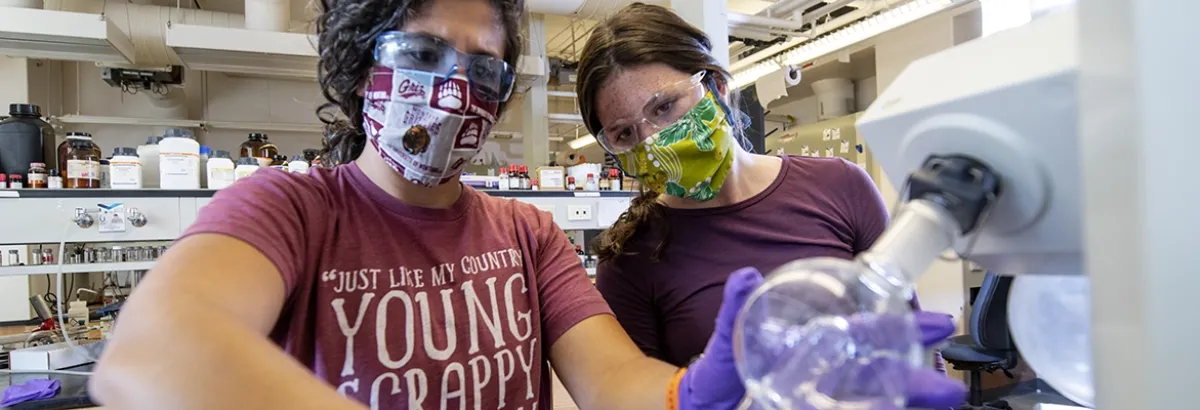Course-based Undergraduate Research Experiences (CUREs) are courses that engage entire classes of students in addressing a research question or problem that is of interest to stakeholders outside the classroom (e.g., the scientific community, the broader community, a sponsoring organization). While CUREs have traditionally been developed for STEM-related questions, a meaningful course-based framework can be used for any research or creative scholarship activity.
CUREs offer many of the same benefits of an undergraduate research experience to students, while also:
- Increasing impact: CUREs engage an entire class, while traditional mentored undergraduate research experiences are limited to single students or small groups.
- Increasing accessibility: Students from groups underserved by higher education are less likely to seek out research experiences. Additionally, faculty often select high-achieving students or students they are familiar with for research positions.
- Integrating research and teaching: While CUREs can be offered as a benefit to students, faculty can also design the course to focus on a question related to their research and generate useful products.
Elements of a CURE
There is often overlap among research-methods, inquiry, and course-based research experiences. CUREs are distinctive in that:
- The outcome of the research is unknown students and professors.
- Students make discoveries that are of interest to external stakeholders, not just the class or as a learning exercise.
- There is the possibility of failure and iterative processes are needed for work to progress.
- The results of the project are disseminated to stakeholders.
Additional resources
- Course-based Undergraduate Research Experiences can make
- Developing Course-based Research Experiences in discipline-based education research:
- Developing course-based
- Course-based Undergraduate Research Experiences:
